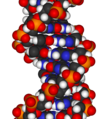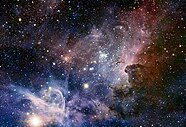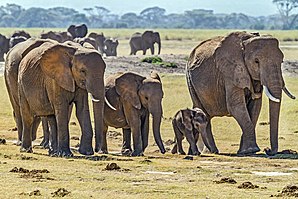
Natural science
Branch of science about the natural world / From Wikipedia, the free encyclopedia
Dear Wikiwand AI, let's keep it short by simply answering these key questions:
Can you list the top facts and stats about Natural science?
Summarize this article for a 10 years old
Natural science is one of the branches of science concerned with the description, understanding and prediction of natural phenomena, based on empirical evidence from observation and experimentation.[1] Mechanisms such as peer review and repeatability of findings are used to try to ensure the validity of scientific advances.
| Part of a series on | ||||||
| Science | ||||||
|---|---|---|---|---|---|---|
|
||||||
| This is a subseries on philosophy. In order to explore related topics, please visit navigation. | ||||||
Natural science can be divided into two main branches: life science and physical science. Life science is alternatively known as biology, and physical science is subdivided into branches: physics, chemistry, earth science, and astronomy. These branches of natural science may be further divided into more specialized branches (also known as fields). As empirical sciences, natural sciences use tools from the formal sciences, such as mathematics and logic, converting information about nature into measurements which can be explained as clear statements of the "laws of nature".[2]
Modern natural science succeeded more classical approaches to natural philosophy, usually traced to Taoist traditions in Asia and to ancient Greece in Europe. Galileo, Kepler, Descartes, Bacon, and Newton debated the benefits of using approaches which were more mathematical and more experimental in a methodical way. Still, philosophical perspectives, conjectures, and presuppositions, often overlooked, remain necessary in natural science.[3] Systematic data collection, including discovery science, succeeded natural history, which emerged in the 16th century by describing and classifying plants, animals, minerals, and so on.[4] Today, "natural history" suggests observational descriptions aimed at popular audiences.[5]




